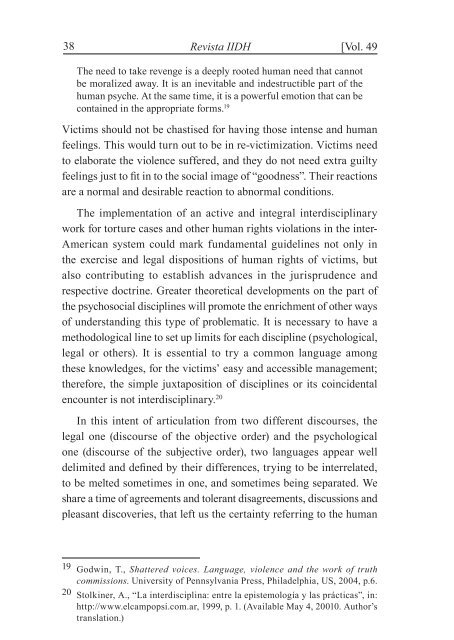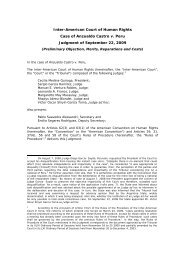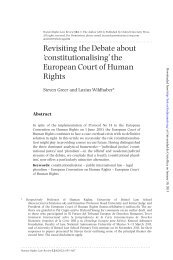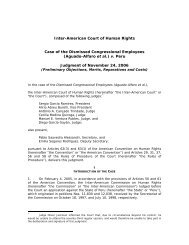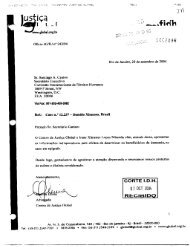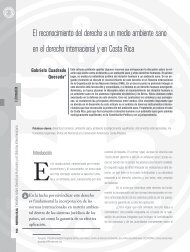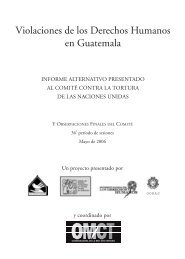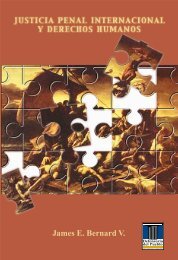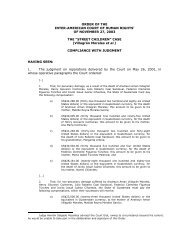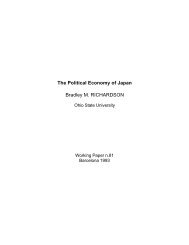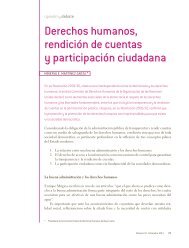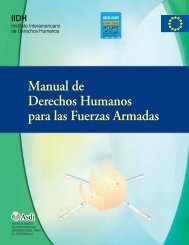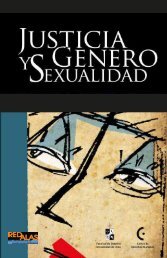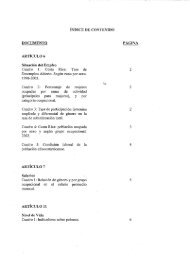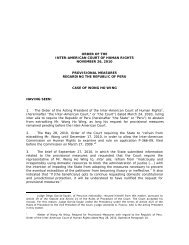Inter-American Court of Human Rights' reparation judgments ...
Inter-American Court of Human Rights' reparation judgments ...
Inter-American Court of Human Rights' reparation judgments ...
- No tags were found...
Create successful ePaper yourself
Turn your PDF publications into a flip-book with our unique Google optimized e-Paper software.
38 Revista IIDH[Vol. 49The need to take revenge is a deeply rooted human need that cannotbe moralized away. It is an inevitable and indestructible part <strong>of</strong> thehuman psyche. At the same time, it is a powerful emotion that can becontained in the appropriate forms. 19Victims should not be chastised for having those intense and humanfeelings. This would turn out to be in re-victimization. Victims needto elaborate the violence suffered, and they do not need extra guiltyfeelings just to fit in to the social image <strong>of</strong> “goodness”. Their reactionsare a normal and desirable reaction to abnormal conditions.The implementation <strong>of</strong> an active and integral interdisciplinarywork for torture cases and other human rights violations in the inter-<strong>American</strong> system could mark fundamental guidelines not only inthe exercise and legal dispositions <strong>of</strong> human rights <strong>of</strong> victims, butalso contributing to establish advances in the jurisprudence andrespective doctrine. Greater theoretical developments on the part <strong>of</strong>the psychosocial disciplines will promote the enrichment <strong>of</strong> other ways<strong>of</strong> understanding this type <strong>of</strong> problematic. It is necessary to have amethodological line to set up limits for each discipline (psychological,legal or others). It is essential to try a common language amongthese knowledges, for the victims’ easy and accessible management;therefore, the simple juxtaposition <strong>of</strong> disciplines or its coincidentalencounter is not interdisciplinary. 20In this intent <strong>of</strong> articulation from two different discourses, thelegal one (discourse <strong>of</strong> the objective order) and the psychologicalone (discourse <strong>of</strong> the subjective order), two languages appear welldelimited and defined by their differences, trying to be interrelated,to be melted sometimes in one, and sometimes being separated. Weshare a time <strong>of</strong> agreements and tolerant disagreements, discussions andpleasant discoveries, that left us the certainty referring to the human19 Godwin, T., Shattered voices. Language, violence and the work <strong>of</strong> truthcommissions. University <strong>of</strong> Pennsylvania Press, Philadelphia, US, 2004, p.6.20 Stolkiner, A., “La interdisciplina: entre la epistemología y las prácticas”, in:http://www.elcampopsi.com.ar, 1999, p. 1. (Available May 4, 20010. Author’stranslation.)


